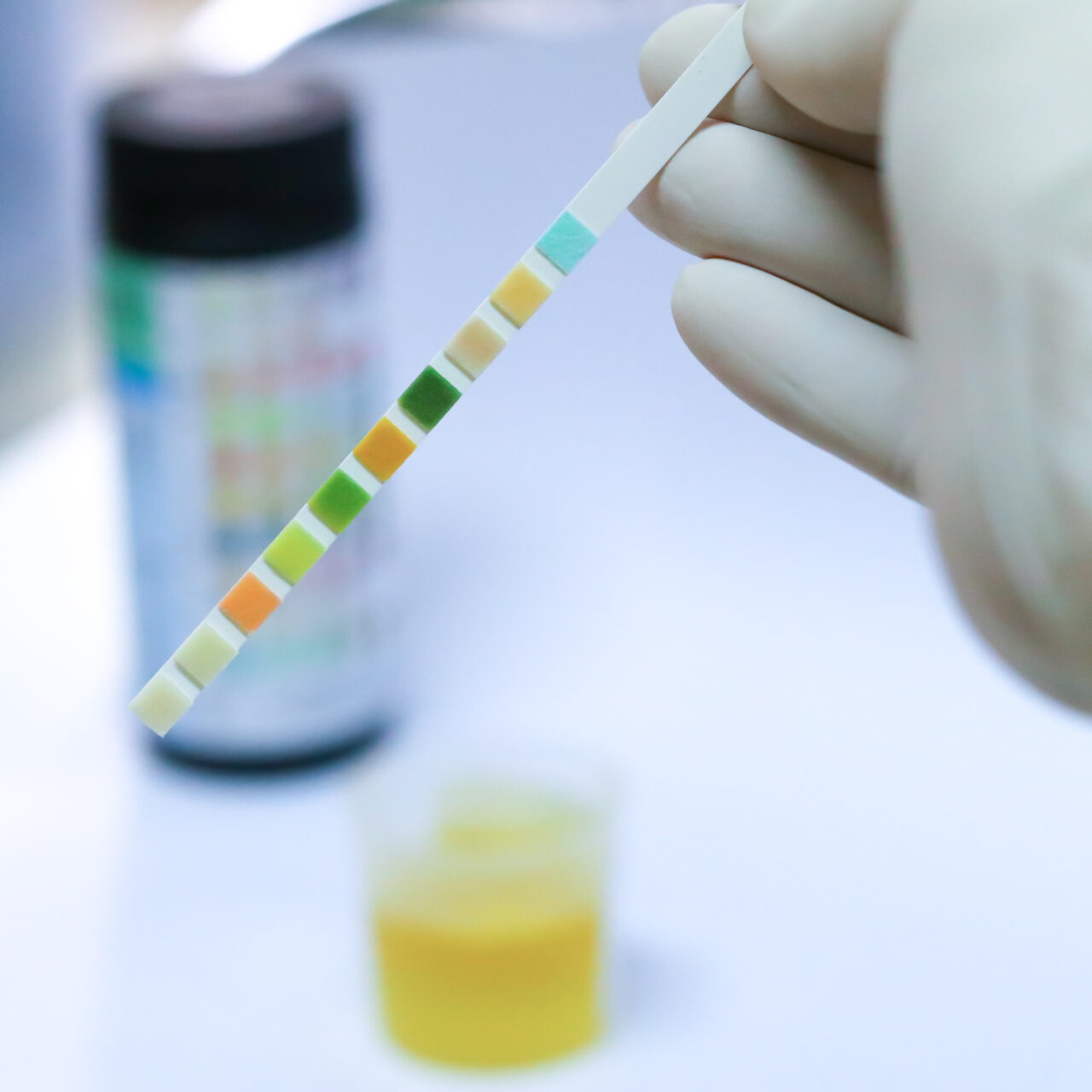Urine Drug Testing for Trauma-Informed Care

What is trauma-informed care?
Trauma-informed care (TIC) is an approach to treatment that recognizes and responds to the widespread impact of trauma on individuals. It emphasizes the physical, psychological, and emotional safety of patients in all aspects of treatment.
TIC is not about treating traumatic experiences but rather in managing the symptoms of trauma and reducing the likelihood of re-traumatizing the patient in the care experience. The Substance Abuse and Mental Health Services Administration (SAMHSA) has identified six principles that guide a trauma-informed approach to treatment:
Safety (patients need to feel physically, emotionally, and psychologically safe and secure when in the care of healthcare professionals)
Trustworthiness and transparency (providers and facilities need to be transparent with patients to earn their trust)
Peer support (providers and facilities need to acknowledge patients’ traumatic conditions and receive support from their peers to avoid secondary traumatic stress and burnout)
Collaboration and mutuality (providers and facilities should view patients as partners in developing treatment plans)
Empowerment, voice, and choice (providers and facilities need to empower patients to take back control of their health)
Cultural, historical, and gender issues (providers and facilities need to recognize and eliminate any potential cultural, racial, gender, or other related biases and accommodate patients’ unique needs)
In practicing trauma-informed care, providers need to be aware of these six principles and adjust their treatment accordingly.
TIC is not about treating traumatic experiences but rather in managing the symptoms of trauma and reducing the likelihood of re-traumatizing the patient in the care experience. The Substance Abuse and Mental Health Services Administration (SAMHSA) has identified six principles that guide a trauma-informed approach to treatment:
Safety (patients need to feel physically, emotionally, and psychologically safe and secure when in the care of healthcare professionals)
Trustworthiness and transparency (providers and facilities need to be transparent with patients to earn their trust)
Peer support (providers and facilities need to acknowledge patients’ traumatic conditions and receive support from their peers to avoid secondary traumatic stress and burnout)
Collaboration and mutuality (providers and facilities should view patients as partners in developing treatment plans)
Empowerment, voice, and choice (providers and facilities need to empower patients to take back control of their health)
Cultural, historical, and gender issues (providers and facilities need to recognize and eliminate any potential cultural, racial, gender, or other related biases and accommodate patients’ unique needs)
In practicing trauma-informed care, providers need to be aware of these six principles and adjust their treatment accordingly.
How prevalent is trauma in substance abuse patients?
Trauma is frequently found as a co-occurring disorder among individuals seeking treatment for substance abuse. Many victims of trauma seek refuge in the use of addictive substances in an attempt to reduce the symptoms of their trauma.
For example, individuals suffering from Post-Traumatic Stress Disorder (PTSD) are five times more likely to seek treatment for substance use disorders than the general population. Studies have shown that anywhere from 25% to 75% of people who have survived abusive or violent trauma develop substance abuse issues.
The practical implication of this data is that patients experiencing substance abuse issues are highly likely to have co-occurring trauma. Providers treating these patients need to be aware of these issues and provide the appropriate trauma-informed care.
For example, individuals suffering from Post-Traumatic Stress Disorder (PTSD) are five times more likely to seek treatment for substance use disorders than the general population. Studies have shown that anywhere from 25% to 75% of people who have survived abusive or violent trauma develop substance abuse issues.
The practical implication of this data is that patients experiencing substance abuse issues are highly likely to have co-occurring trauma. Providers treating these patients need to be aware of these issues and provide the appropriate trauma-informed care.


How does urine drug testing affect trauma-informed care?
Traditional viewed urine collection impacts two of the six tenets of trauma-induced care. First, requiring another person to be in the same room while a patient is providing a urine sample violates the perceived safety of patients suffering from trauma. In addition, individuals in the LGBTQIA+ community may feel discomforted or discriminated against if their urine collection is viewed by someone of an inappropriate gender, violating the sixth principle of TIC. This can cause re-traumatization or new trauma among some patients.

How does Valley Medical's vTOX® urine drug testing support trauma-informed care?
Valley Medical’s vTOX® DNA-verified urine collection helps treatment centers and providers adhere to the principles of trauma-informed care by eliminating viewed urine collection. This has the following positive impacts:
Enhances the patient’s physical and psychological safety by making the collection area a safe space free from the presence of others
Provides gender-responsive service by removing unwelcome or inappropriate individuals from the viewed collection process
Treatment centers and providers practicing trauma-informed care can turn to Valley Medical’s vTOX® to better serve individuals suffering from substance abuse who require regular urine drug testing. It’s an effective way to ensure that victims of both trauma and substance abuse can receive the understanding treatment they seek and deserve.
Enhances the patient’s physical and psychological safety by making the collection area a safe space free from the presence of others
Provides gender-responsive service by removing unwelcome or inappropriate individuals from the viewed collection process
Treatment centers and providers practicing trauma-informed care can turn to Valley Medical’s vTOX® to better serve individuals suffering from substance abuse who require regular urine drug testing. It’s an effective way to ensure that victims of both trauma and substance abuse can receive the understanding treatment they seek and deserve.

How does vTOX® DNA-verified urine drug testing work?
vTOX® from Valley Medical Laboratory is a revolutionary new form of urine drug testing that uses DNA fingerprinting to validate urine samples and eliminate the need for viewed urine collection. All that’s required is a one-time cheek swab and all future urine samples are genetically matched with your client’s stored DNA information.
The process starts by using a buccal swab to collect a sampling of cells from inside the client’s cheek. The swab is transferred to Valley Medical’s reference laboratory, where a laboratory technician extracts DNA samples and analyzes that DNA for the presence of specific genetic markers. This data is then entered into our system, where it is matched against the genetic markers found in the client’s future urine samples. If the markers match, the urine sample is genuine and verified.
The use of DNA fingerprinting ensures that your clients can’t substitute artificial urine or urine from other sources for their own urine. It also provides your clients with the privacy they need to avoid triggering any existing or causing new traumas. It’s a win-win for all concerned and an important part of trauma-informed care.
The process starts by using a buccal swab to collect a sampling of cells from inside the client’s cheek. The swab is transferred to Valley Medical’s reference laboratory, where a laboratory technician extracts DNA samples and analyzes that DNA for the presence of specific genetic markers. This data is then entered into our system, where it is matched against the genetic markers found in the client’s future urine samples. If the markers match, the urine sample is genuine and verified.
The use of DNA fingerprinting ensures that your clients can’t substitute artificial urine or urine from other sources for their own urine. It also provides your clients with the privacy they need to avoid triggering any existing or causing new traumas. It’s a win-win for all concerned and an important part of trauma-informed care.



Contact us to learn more about how vTOX® supports trauma-informed care
To learn more about how vTOX® can benefit your facility, click here or contact us by phone at 612-471-1141 or by email at info@valleymedlab.com. We’re looking forward to discussing how Valley Medical Laboratory can help you provide trauma-informed care at your facility.





